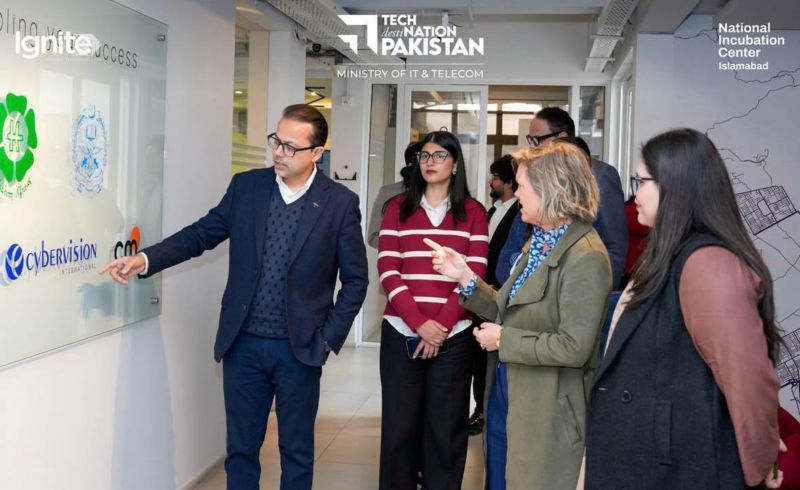BusCaro Raises $2M to Redefine Shared Mobility in Pakistan: How It’s Balancing Profit, Purpose & Scale
Maha Shahzad didn’t wait for the stars to align. She built BusCaro during one of the toughest periods for mobility startups in Pakistan when competitors were collapsing and the sector was considered too risky. Now, with a fresh $2 million funding round, BusCaro is redefining what a sustainable future for shared transport looks like.
What BusCaro Is Doing Differently
- Strategic Investors & Growth Stage
The new round (bringing total funding to about $3.5M) was led by Daman Investments (UAE), along with Cartography Capital, Epic Angels, Wahed Ventures, and Accelerate Prosperity. This renewed investor confidence mirrors broader VC activity in Pakistan’s tech scene — a trend explored in Venture Capital in Pakistan 2025: Top Investors You Need to Know. - Strong Metrics & Scaling
BusCaro now handles 900,000+ monthly bookings and targets roughly US$8.6M annualised revenue for 2025 — impressive traction amid tightening capital. Similar scaling stories are discussed in Pakistan IT Potential Shines at US Tech Investment Conference 2025. - Business Model That Balances Profit & Purpose
• Asset-light and tech-first: The startup doesn’t own its fleet; it uses software, route optimization, and partnerships to drive scale and efficiency.
• Dual Verticals (B2B + B2B2C): BusCaro partners with companies and institutions (corporate employees, schools) to guarantee demand (B2B) and also works through facilitators like housing societies for B2B2C. This helps reduce customer acquisition costs and ensures more stable revenue. - • Safety, Trust & Tech Stack: Live tracking (especially for schools and parents), operational dashboards, safety protocols, transparency in pricing all helping build trust among commuters.
- Geographical & Impact Expansion
Service in Karachi, Lahore, Islamabad, Rawalpindi. Over 80 corporate partners. High client retention (97%+) demonstrating that once commuters and institutions trust the service, they stay.
Challenges & Realities Growing Pains
- Working Capital Strain: Financing remains difficult due to rigid lending systems. Budget 2026 and Startups: New Taxes, Challenges, What’s Next explores how fiscal policies affect liquidity for early-stage ventures.
- High Costs and Burn: The company isn’t profitable yet. Following legal frameworks like those in Startup Legal Check: Must-Have Agreements for Founders, Teams & Investors in Pakistan can help manage governance and risk.
- External headwinds: Fuel prices, inflation, and informal competitors create volatility. See How Pakistan’s EV Infrastructure Boom Is Creating New Startup Opportunities and Reuters’ Fuel Price Tracker for South Asia.
Lessons Learned What Other Founders Can Take from BusCaro
| Lesson | Insight |
| Unit Economics Matter | From day one, build a model where cost per ride ≤ revenue per ride. Subsidies might help initially, but aren’t sustainable long-term. |
| Focus on partnerships | B2B and B2B2C models help with demand aggregation, lower acquisition costs, and steadier revenue streams. |
| Safety & Trust Are Strong Differentiators | When people feel safe, especially women and parents, retention goes up. Safety features and transparency matter. |
| Start Lean, Scale Strategically | You don’t need to own all assets. Use tech, tools, and external resources to grow efficiently. |
| Resilience & Persistence | BusCaro faced hundreds of rejections before early funding. Founders who keep going tend to find ways. |
| Manage Growth With Cashflow in Mind | High revenues are great, but without sufficient working capital and control over burn, growth can slip into danger. |
Also, external resource: Crunchbase Profile — BusCaro for investor and funding details.
What This Means for Pakistan’s Mobility Sector
BusCaro proves Pakistan’s mobility sector is ready for sustainable, tech-driven reform. Reliable transport benefits commuters, corporates, and investors alike — echoing findings in World Economic Forum’s Future of Urban Mobility Report.
BusCaro’s success suggests that even sectors previously thought too risky (like mobility) can scale in Pakistan if you get the model right. It’s not just about catching investor attention with big metrics; it’s about sustainable operations and solving real, local problems in transit, safety, affordability. For commuters: more reliable service, safer routes, more predictability.
For employers and institutions: reduced absenteeism, more satisfied workforce.
For investors: proof that mobility can be more than ride-hailing; it can be structured, impact-oriented, and financially viable.
FAQ
BusCaro is a Pakistan-based mobility startup founded by Maha Shahzad in 2022. It provides shared commute services through a tech-first, asset-light model for corporate employees, students, and daily commuters.
BusCaro recently raised $2 million, bringing its total funding to $3.5 million. The round was led by Daman Investments (UAE) with participation from Cartography Capital, Epic Angels, Wahed Ventures, and Accelerate Prosperity.
Unlike previous players like Airlift or Swvl, BusCaro achieved positive unit economics from day one. It focuses on B2B and B2B2C aggregation, partnerships with corporates and communities, and prioritizes safety, sustainability, and profitability over aggressive expansion.
BusCaro’s story highlights key lessons: focus on unit economics, build trust and safety, form strategic partnerships, and maintain resilience in the face of rejections and financial challenges.




